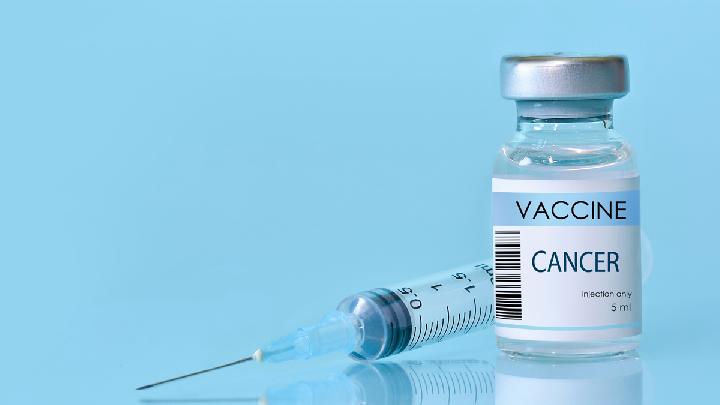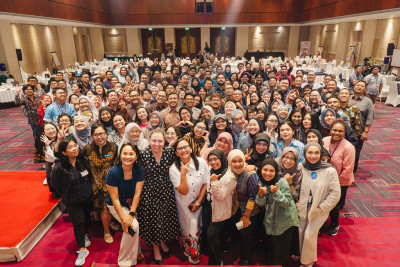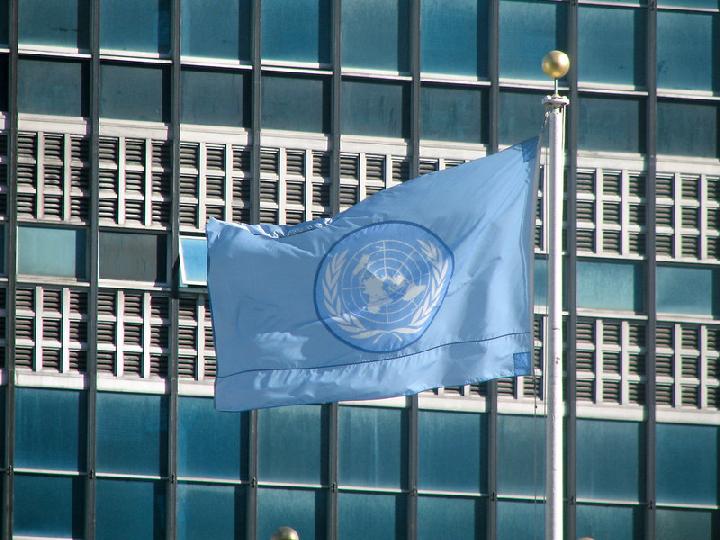September 10, 2025 | 10:12 am

TEMPO.CO, Jakarta - About seven out of ten cases of vulvar and vaginal cancers are associated with a high-risk human papillomavirus (HPV) infection, which is also the main cause of cervical cancer. HPV can infect the cervix, vagina, and vulva, and can trigger pre-cancerous changes that may develop into cancer.
In fact, most cases of vaginal cancer originate from an untreated HPV infection in the cervix. Therefore, prevention and screening play a crucial role in reducing the risk of vulvar and vaginal cancers.
Preventing Vulvar and Vaginal Cancers
Being aware of symptoms and risks early on is vital to support the early detection of vulvar and vaginal cancers. Nonetheless, prevention remains the primary step in reducing the likelihood of developing these diseases. Here are the prevention measures that can be taken to maintain women's reproductive health:
1. HPV Vaccination
HPV vaccination is recommended for women aged 9 to 45 years, as it can reduce the risk of HPV-related cancers, including vulvar and vaginal cancers. For those who are sexually active, consulting a gynecologist is necessary to determine the appropriate type of vaccine. This step is one of the most effective prevention measures before pre-cancerous changes occur.
2. Regular Screening
Cervical examinations, such as pap smears or HPV tests, are still recommended according to national guidelines, as untreated cervical infections can increase the risk of vaginal and vulvar cancers. Screening helps to detect pre-cancerous changes that may not cause any symptoms. With early detection, treatment can be administered promptly, increasing the chances of recovery.
3. Control of Chronic Skin Conditions
Chronic skin diseases in the vulva area, such as lichen sclerosus or lichen planus, when left untreated, can increase the risk of cancer. Regular examinations and periodic follow-ups are recommended to reduce prolonged inflammation. This is important to prevent pre-cancerous cell changes that may potentially develop into cancer.
4. Behavioral and Medical Risk Factors
Several factors, such as smoking, weakened immune systems, and having multiple sexual partners, can increase the risk of persistent HPV infection. Reducing these risk factors is crucial in preventing vulvar and vaginal cancers. By understanding and managing the risk factors, the opportunity to prevent the development of pre-cancerous cells can significantly increase.
Treatment for Cervical, Vulvar, and Vaginal Cancers
According to CNA, women experiencing suspicious symptoms, such as prolonged itching, abnormal bleeding, or the appearance of lumps in the genital area, should promptly consult a doctor or gynecologist. Early examinations are important for assessing the condition and determining further diagnostic steps. With appropriate early management, the likelihood of early detection can increase, and the risk of complications can be minimized.
If suspicious lesions are found, doctors usually recommend a biopsy to determine whether the lesions are pre-cancerous or cancerous. The biopsy results form the basis for determining the most suitable therapy for the patient's condition. Treatment can include surgery, radiotherapy, or chemotherapy, either individually or in combination, tailored to individual needs.
The treatment for cervical, vulvar, and vaginal cancers depends on the stage and location of the cancer when diagnosed. Treatment options may include surgery to remove affected tissues, radiotherapy, or chemotherapy, either individually or in combination. The appropriate approach will be customized by a specialist doctor to maximize treatment success and minimize complications.
In addition to medical treatment, early detection remains a critical factor in increasing treatment effectiveness. Patients undergoing regular screening and HPV vaccination have a greater chance of recovery, as cancers can be detected before spreading or worsening. Therefore, maintaining reproductive health through prevention, screening, and managing risk factors is crucial to minimize the impact of these diseases.
Editor's Choice: Russia's Enteromix Cancer Vaccine Reports 100% Success in Clinical Trials
Click here to get the latest news updates from Tempo on Google News
Russia's Enteromix Cancer Vaccine Reports 100% Success in Clinical Trials
19 jam lalu

A Russian-made mRNA cancer vaccine, Enteromix, is reported to show 100% efficacy and safety in clinical trials, marking a breakthrough in the fight against aggressive cancer and its prevention.
Frank Caprio, America's Most Beloved Judge Dies at 88
19 hari lalu

Judge Frank Caprio, famed as the "Nicest Judge in the World," passed away at age 88, leaving a legacy of compassion, viral court moments, and kindness
Goh Cheng Liang, Singapore's Richest Person with $13 Billion Fortune, Dies at 98
27 hari lalu

Goh Cheng Liang, Singapore's richest person, died at 98, leaving an estimated US$13 billion fortune as Nippon Paint's majority shareholder.
Chemotherapy: 10 Things to Do Before Starting the Treatment
35 hari lalu

Chemotherapy is a common treatment for cancer patients. What should be prepared before undergoing chemotherapy?
Understanding the California Prop 65 Label Seen on Indonesian Spice Product
38 hari lalu

A video circulating on social media shows an Indonesian spice product bearing the Prop 65 or Proposition 65 label from California.
Managing Drug-Resistant Cancers: Darwin to the Rescue?
8 Juni 2025

Most cancer deaths happen because the cancer cells become resistant to drugs. Adaptive therapies could fix that.
Mighty Little Tools to Tackle Cancer
25 Mei 2025

In 2022, nearly 9.7 million people worldwide lost their lives to cancer, with 20 million new cases reported globally.
Joe Biden Diagnosed with Aggressive Prostate Cancer
19 Mei 2025

Former U.S. President Joe Biden has been diagnosed with aggressive prostate cancer
Major Causes of Death: 4 Deadly Diseases in Indonesia
19 Mei 2025

The four deadly diseases do not directly cause death, but they can slowly kill
9 Daily Foods and Drinks That Could Drive Cancer Growth
14 April 2025

Various everyday foods and beverages contain harmful substances that can stimulate cancer cell growth.
















































